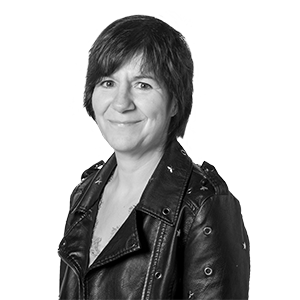The “biological” mother with all the necessary quotation marks


Fúlvia Nicolàs has directed a Non-fiction, 'Mae' means 'mother' about the experience of three sisters who were adopted in Brazil by a Catalan couple. According to Fúlvia, the three girls—the oldest being nine years old—were "disoriented and sad" because, they explain, they had "lost everything we knew and loved." Their biological mother, addicted to drugs, left the girls in an orphanage "until she was in a position to recover them." But, writes Fulvia, "social services had other plans."
It's not my role, nor my intention, to talk about the documentary, nor about the complicated and painful situation of leaving three daughters in the hands of social services. Regarding this story, above all, I think about my parents. I don't like to say "adoptive," just as I don't like to say "biological." For me, as a "biological" mother, parents, real parents, are the ones who love and care for you.
Among my adoptive friends, heterosexual or homosexual, who have adopted, there is always that fear. One day, in adolescence, when it's normal and even desirable for them to hate you and not want to be like you, a dung beetle, the starlet may unexpectedly appear. That father or mother who didn't take care of your child for whatever reason and who now, born out of nowhere or sought out by them, will be hopelessly romanticized. I neither judge nor lecture. I simply put myself in Cinderella's place, the one who scolded, the one who lost patience, the one who suffered so much to go find that child, to help them adapt, to make them moderately happy. I can't watch the documentary because the "biological" mother appears in the trailer, but I don't know if the "adoptive" mother appears. Every reproach the biological mother makes to the system—"they took them away from me, I didn't know"—is a stab in the back at those two who mortgaged themselves, perhaps, who made that journey, who wanted to take care of the three girls, the oldest being nine, with memories and a steep climb to the top holding their hand.
